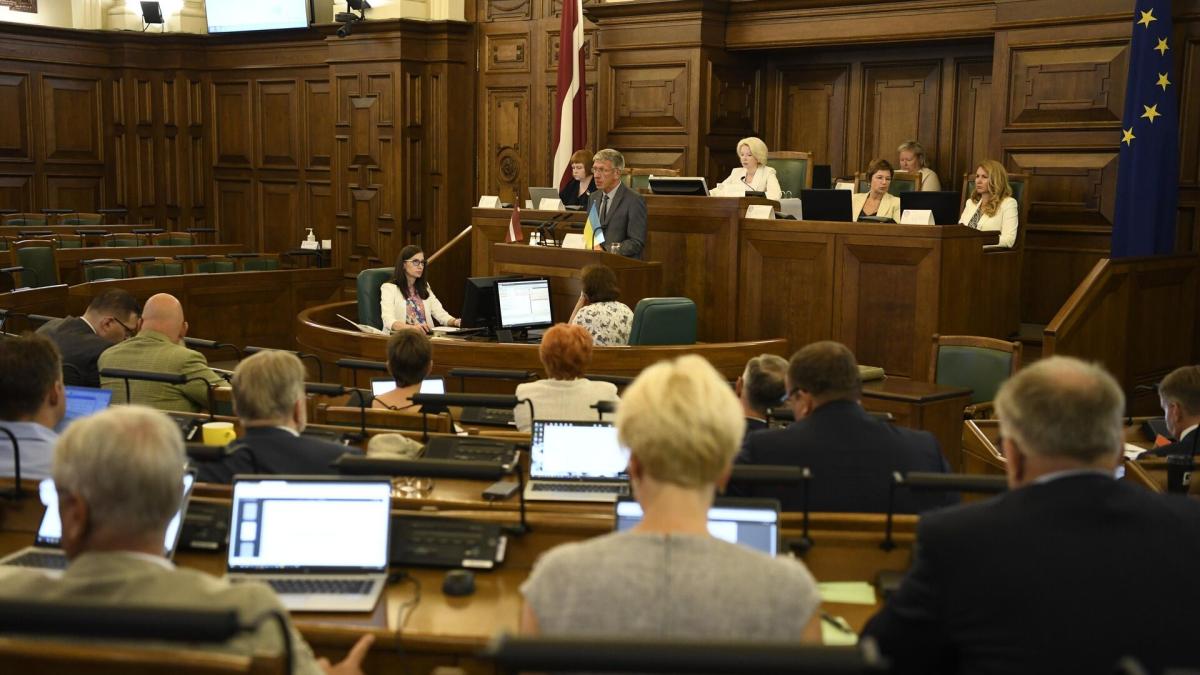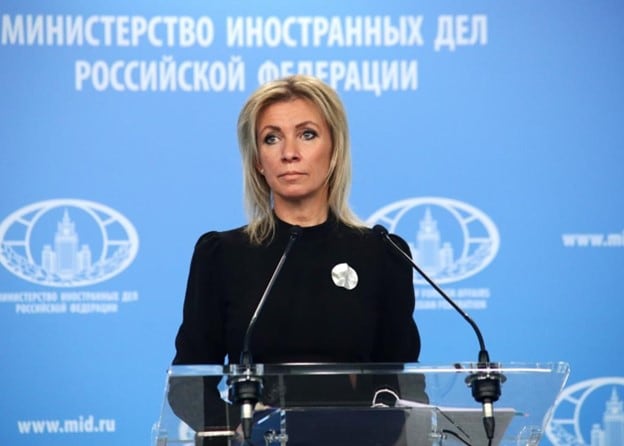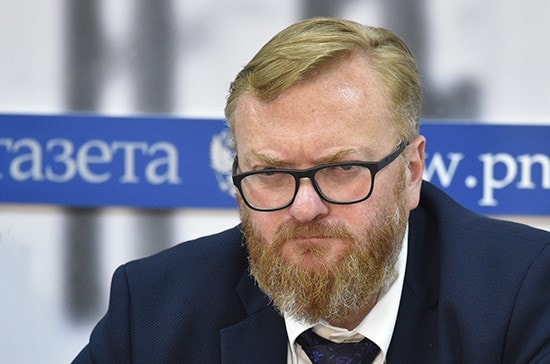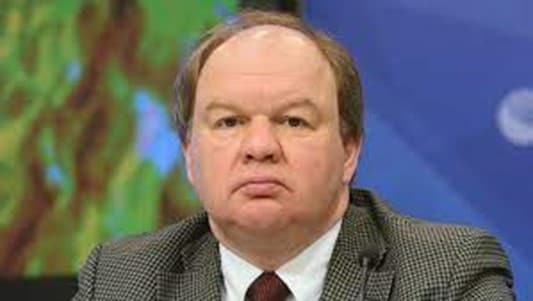On top of the sanctions already imposed upon Russia for invading Ukraine, Russia is facing moves that would designate it a state sponsor of terrorism. A bipartisan "Sense of the Congress" resolution recommending that the Biden administration apply that designation passed the US Senate unanimously. The resolution cited Russian terrorism beginning with the war in Chechnya and continuing with Syria Georgia and Ukraine. The operative passage of the resolution read: SECTION 1. SENSE OF THE SENATE.
The Senate—
(1) views the actions of the Government of the Russian Federation, at the direction of President Vladimir Putin, as sponsoring acts of terrorism; and
(2) calls on the Secretary of State to designate the Russian Federation as a state sponsor of terrorism.[1]
The House of Representatives went further and a bill was introduced in late July applying that designation. Chances for its passage are high and then the Senate will presumably follow suit.[2] Although the Biden Administration is wary about the bill, believing it still needs an open channel to the Russians for example on strategic arms talks. Meanwhile, on August 11, 2022, the Latvian Saeima designated Russia a state sponsor of terrorism thus joining Lithuania.[3] What is less immediate is a discussion scheduled in Prague two weeks hence to discuss a EU wide ban on tourist visas for Russian citizens. Although Germany France and Holland have announced their opposition other states and the Baltic States in particular, are pressing for a community wide ban.[4]
Russian reaction has taken the form of indignation, accusations of Russophobia, threats of retaliation, ridicule but there is also concern about the trend that this reflects, and the growing exclusion of Russia and individual Russian citizens from the Western world.
MEMRI's report on Russian reactions to initiative that would label Russia a state sponsor of terrorism follows below:

Latvian Saeima declares Russia a state sponsor of terrorism (Source: Ria.ru)
The issue played out in two installments each prompting Russian reactions. The first installment was the US Senate vote in late July, and the second installment was the Latvian Saeima's vote branding Russia a state sponsor of terrorism. The official Russian response to the senate vote was that if any country deserved the title of state sponsor of terrorism it was the US.
Take I: Reactions To US Congressional Initiatves
The head of the State Duma Committee on International Affairs, and the new leader of the Liberal Democratic Party of Russia Leonid Slutsky dismissed the US Senate's labeling Russia a state sponsor of terrorism as but another instance of "Russophobic nonsense.".
"To everyone who voted for this resolution, I want to say: have you looked in the mirror for a long time? Among the American senators, there were probably those who at one time supported gangs in the Caucasus, those who approved of helping the so-called 'moderate' terrorists in Syria , and those who for eight years did not want to notice the Ukrofascist terror and genocide in the Donbass!"[5]
Duma deputy Anatoly Wasserman, who left Ukraine for Russia after criticizing the Ukrainian government's position said: "All normal people around the world already understand quite well that in all those places that the United States listed [in the Senate resolution], accusing us of sponsoring terrorism, we, to the contrary, suppressed it, and with all our might... Moreover, almost all terrorist groups in the world are supported by the United States, this fact is well known to everyone... So, we simply must recognize the United States, as well as the entire NATO organization, as sponsors of terrorism."[6]
Russian Foreign Ministry Spokesperson Maria Zakharova threatened a complete rupture in relations with the US should the designation be imposed. She however sought to differentiate between the administration and the "flying" House Speaker Nancy Pelosi, whom Russia derided for her recent "provocative" visit to Taiwan:
"The US legislators, including the 'flying' House of Representatives Speaker Nancy Pelosi, are at a loss for new anti-Russia sanction instruments, having used all their available tools, which for the most part proved ineffective. They are considering a new “powerful weapon”: the declaration of Russia as a state sponsor of terrorism.
Senators and Congresspeople may regard this use of national legislation, which contravenes international law, as a terrible punishment, which might force Russia to accept the US 'rules-based order.' This is naïve. They forget that for every action, there is an equal and opposite reaction, and a logical reaction to their irresponsible move would be the severance of diplomatic relations, which would push Washington beyond the point of no return with all the ensuing consequences. The United States must understand this. I hope the “flying” speaker will return to base and possibly consult those who are at the very least interested in diplomacy as a profession. We would like to believe that the Biden administration is aware of this, despite its eccentricities.[7]

Maria Zakharova (Source: Korrespondent.net)
The head of the Institute of Regional Problems, political scientist Dmitry Zhuravlev, agreed with Zakharova that the Biden Administration would not be railroaded by Congress and would not sign a bill labeling Russia a state sponsor of terrorism into law. "At this stage, the US Senate made such a proposal, but I think that Biden will not sign such a document."
Zhuravlev warned that such a designation if signed into law would inflict upon Russia tangible and not only reputational damage:
"If we were to be included in the list of countries that are sponsors of terrorism, then this means automatic arrest and seizure of all our property in the territory to which they [the United States] can reach. If we, in their opinion, are sponsors of terrorism, then our money can not only be arrested or frozen, but expropriated in their favor." If the designation was embraced by many countries, Russia would lose its property rights abroad and economic interaction would be stifled.[8]
Take II: The Latvian Declaration
On August 11, 2022, the Latvian declaration arrived, and the division between belittlement and alarm repeated itself. However, given the disparity in size between the US and Latvia there was added menace in the reaction.
Maria Zakharova attributed Latvia’s decision to recognize Russia as a terrorist state to "animal-like xenophobia" and referred to the ideologues behind the decision as neo-Nazis. [9]
The Russian Foreign Ministry invoked the interesting argument that Latvia was in violation of Article 2, Paragraph 1 of the UN Charter (the principle of the sovereign equality of all UN members).
SUPPORT OUR WORK

"Such an impudent and arrogant singling out of undesirable countries into a special category is in line with the collective West's long-standing policy of replacing universal norms and principles of international law with a so-called 'rule-based' order, in which Riga is entrusted with the role of a pawn in the hands of its overseas masters."
Duma deputy Vitaly Milonov ridiculed the Latvian declaration: "Some Baltic clowns have yet again displayed their irrelevance...We can recognize Latvia as an outcast or a loser, but this will not have any effect on it. It is, of course, kindergarten stuff. I think that Russia, with its greatness, has earned the right to ignore a country such as Latvia, and not disclose its existence. We have to wish Latvia a speedy deliverance from the moral deviants who are currently in power.[10]

Vitaly Milonov (Source: Pnp.ru)
Some Russian official threatened Latvia with retaliation for the declaration.
Senator Sergey Tsekov predicted that Moscow will make a proper response to the Latvian decision presumably in the economic field.
"Such a decision on part of the Latvian Saeima is simply out of line. I believe that Russia will take retaliatory measures, which will put Latvia in its place, and these measures will be painful for Latvia," said Tsekov.[11]
Andrei Klishas, Chairman of the Federation Council Committee on Constitutional Legislation.
wrote in his Telegram channel that the most stringent measures – both economic and political should be taken against Latvia.
Klishas credited Russia with making the most significant contribution to the fight against terrorism, whereas those who tried to destroy the statehood of Iraq, Syria and Libya should be recognized as accomplices of terrorists. Their actions had contributed to rampant terrorism in the Middle East and North Africa, and throughout the world.[12]
The commentator and political scientist George Bovt claimed that the bravado displayed by commentators, who derided Latvia's importance and its vulnerability to retaliatory measures, was misplaced:
"The Latvian Saeima's decision is primarily symbolic in nature. However, considering the EU’s decision-making mechanism, it will serve as an important political argument for, first, similar decisions on the part of other European states and, second, for the introduction of even tougher sanctions against Russia in other spheres (the very same visas, for example).
"The fact that the decision is made by a small Baltic country and not by one of the EU major powers certainly matters. However, the small European countries have already demonstrated how they were able to push for political decisions regarding anti-Russian sanctions or aid to Ukraine that at first seemed too radical. Given the background of current public sentiments in Europe, it’s difficult for politicians to publicly withstand such an information pressure.
"Latvia will be promoting its policy outside Europe as well. For instance, Latvian Foreign Minister, Edgars Rinkevics recently urged his Australian counterpart to pass a similar decision at the level of the country-continent’s legislation.
"Previously, the US Senate and House of Representatives also urged the White House to recognize Russia as a sponsor of terrorism. The list of claims is roughly the same as the one put forward by Latvians. So far, the US State Department, which earlier, under Trump, was delegated the right to designate a country as a sponsor of terrorism via a special bill, has been slow to pass corresponding decision.
"The Biden administration believes it would undermine relations with some allies, which still have business ties with Russia, making it difficult to maintain diplomatic relations with Moscow even at the existing miniscule level. House Speaker, Nancy Pelosi has previously stated that Congress will pass such a decision alone, provided White House continues to procrastinate. Given the mood on Capitol Hill, such a bill could get support of about 100% of the votes...
"What consequences would such a decision have at EU level and, more importantly, at US level? There are four formal requirements stipulated by the US law: restrictions on US aid, including economic one; a ban on sales of defense goods; additional export controls on dual-use goods [meaning goods available for military and civilian use]; and various financial and other restrictions. The majority of these measures are already in effect. In addition, something like a financial embargo could be introduced.
"The recognition on part of the US of a country as a sponsor of terrorism prompts a number of indirect consequences that are even more harmful. There are sanctions and various kinds of restrictive measures against individuals and countries that engage in trade with a 'terrorist' state; diplomatic immunity is lifted for representatives of such a country.
"For instance, family members of victims of terrorist attacks, or attacks committed by such a state are entitled to file a suit for compensation to US courts. At both the EU and US level, such a status would make it even easier to resolve issues of state property confiscation. For starters, all state property and assets of such a state would be frozen in the US, and the freeze could cover all USD transactions [on part of such a state] in general."
The facile assumption that Latvia was susceptible to severe economic pressure was also questionable: "With regards to the retaliatory measures against Latvia that some Russian politicians threatened, Riga has partly prepared for them by deliberately severing the last economic ties with Russia... A number of intergovernmental agreements, particularly on economic cooperation, have been suspended since 1 August.
"Meanwhile, in spite of the heavy losses prompted by the cessation of transit from Russia, the Latvian economy won’t collapse, as the European Commission believes. There are forecasts that Latvian economy will demonstrate 2% GDP growth this year, and next year by 2.9%. In this regard, Latvia seems to be more prepared for an economic war with Russia, than even Germany is..."[13]
Kommersant's Dmitry Drize recommended looking at the general adverse trend for Russia and not to count on the Biden Administration's standing up to congressional pressure.
"Moscow has once again threatened Washington with terrible punishments if Russia is nevertheless recognized as a sponsor of terrorism. The State Department and American President Joe Biden seemed to be initially against it, but if both houses of Congress support the document, as Speaker of the House of Representatives Nancy Pelosi spoke about, then in this case the situation changes, and the prospects of the law's passage increase.
"It is not yet entirely clear what will happen next. Events are developing so rapidly that nothing can be asserted and predicted. Why the White House objected is understandable: it is necessary to conduct a dialogue with Russia on many important issues, including global disarmament. The termination of these contacts threatens the emergence of chaos and new threats. However, we have to repeat the obvious once again - not everything in America depends even on the president, and even more so on the secretary of state. If public opinion - that is, the majority of voters demand it - they will have no choice. So, the scales are tipping towards a result that the resolution recognizing Russia as a state sponsor of terrorism may well turn into something concrete.
"As for the Russian response, there are prospects for a complete severance of diplomatic relations with the United States, which has been discussed many times. It is difficult to say how seriously this will hit the Americans. But the Russians, including official delegations who are sent to the UN for meetings, may experience difficulties.
"Let's leave aside the topic of sponsorship of terrorism for a while and move on to another interesting idea - to deprive Russian citizens of the right to visit Europe - to refuse them visas. Or force them to somehow justify why they are going to the Old World, and how they relate to the political course of their leadership. The corresponding discussion is also gaining momentum. It is very possible that it will be embodied in something concrete precisely at the level of the large EU - that is, it will become a law.
"The process is underway, because the Baltic countries have already made appropriate decisions. In this regard, there is reason to believe that the break, if not diplomatic relations, then any contacts with Western countries is a reality that should be taken for granted.
"Moreover, it seems that Russian citizens - and not your average ones, but the so-called elites - are clearly not enthusiastic about all this. Turkey and Dubai will not replace Nice and Barcelona, nor will Miami. Although it is believed that this should not affect the mood of ordinary voters or, as it is fashionable to say now, the deep people...
"However, the problem is that it is the elites who are the driving force of society, are so to speak, an influential minority.
"However, the main thing is not in this, but in the fact that events are developing so rapidly that anything can happen. This includes what today seems impossible and unrealistic, and tomorrow will become a fait accompli.
"This means that other ideas on how to stab Russia as painfully as possible may appear. Be that as it may, the search for weak spots to bite ongoing day and night. Here is the current trend.[14]
The Director of the Center for European Information Nikolai Topornin, and Associate Professor at the Moscow State Institute of International Relations also feared that the Biden Administration would not be able to rein in Congress: "The probability [of passing such a law] is quite high. The thing is that this initiative was promoted by the Congress and support for it in both chambers of the American legislature is very high. I have practically no doubt that it will be adopted, provided this bill is introduced in the House of Representatives, and in the Senate."
Congressional support defied the opposition to the bill by the State Department, and President Biden to the measure for fear that it would jeopardize strategic arms negotiations. However, given the current climate, the administration's hands may be tied.

Nikolai Topornin (Source: Sputnik.by)
Sergey Ordzhonikidze, former UN Under-Secretary-General and former Russian Deputy Foreign Minister was less concerned about the passage of the law given international realities. "Even if this happens, it has no consequences for our country, because, first of all, international law isn't aware of such a concept as 'state sponsor of terrorism.' Most importantly, there must be some sanctions behind it, and I cannot imagine what other sanctions the Americans might impose on Russia. They have already imposed every possible and impossible sanction, imaginable ones and unimaginable... Relations with Russia aren’t going anywhere, we are the two largest states in the world, whether we like it or not, it’s politics, and in my opinion, diplomatic relations before a direct armed conflict, should be maintained."[15]
[1] Congress.gov/bill/117th-congress/senate-resolution/623/text
[2] Atlanticcouncil.org, August 15, 2022.
[3] Abcnews.com, August 11, 2022.
[4] Guardian.co.uk, August 13, 2022.
[5] Life.ru, July 28, 2022
[6] News.ru, July 28, 2022
[7] Mid.ru, August 2, 2022,
[8] Vm.ru, July 28, 2022.
[9] Vm.ru, August 11, 2022.
[10] Vologdapoisk.ru, August 11, 2022.
[11] Eadaily.com, August 11, 2022.
[12] Tvc.ru, August 11, 2022.
[13] Bfm.ru, August 11, 2022.
[14] Kommersant.ru, August 15, 2022.
[15] Bfm.ru, August 13, 2022.




